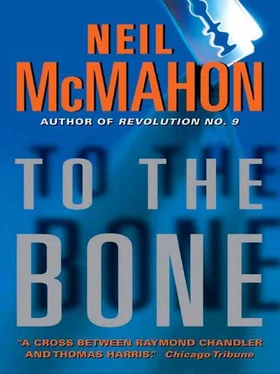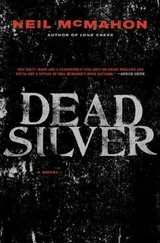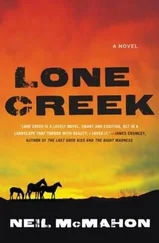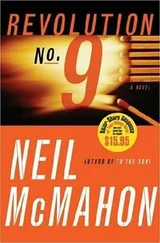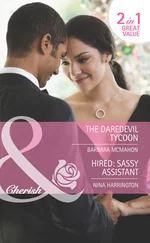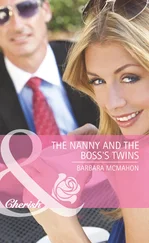
The Third Book in the Carroll Monks Series, 2003
For Drs. Barbara and Dan McMahon
Heart empowers mind
Mind informs heart
She was not old, nor young, nor at the years
Which certain people call a "certain age,"
Which yet the most uncertain age appears.
– Lord Byron
A feverish tormenting dream of fire, spreading through her, forced her awake. She was in bed, knees drawn up to her chest, hands clenched tightly. The apartment was dark and still. The overhead fan whispered, cooling the air, but the sheets were soaked with sweat. Her blurred eyes could just make out the glowing red numbers on the alarm clock: 3:18 a.m.
The fire stayed behind in the dream, but the pain was real. She twisted with nausea, moaning.
"Ray?" she whispered. Her throat was parched, her voice hoarse. "Is anyone here?"
Nothing stirred in the darkened rooms. Her mind was foggy from drugs, but she remembered that the boyfriend who was supposed to stay with her had gone out for cigarettes. Someone else had stopped by after that-someone kind, feeding her soup and more painkillers, that had eased her into sleep.
But that was hours ago. The pain had been only in her breasts then, but now it was everywhere-fierce cramping and burning that worsened in quick stages, like the tightening of a vise.
She focused her teary vision on the phone, on her bedside table. It was out of reach, and the thought of moving was intolerable. But the pain pierced like shards of glass. Sobbing, still curled up tight, she inched across the endless expanse of bedsheet. As she groped for the phone, an image flitted through her brain, a memory or dream as she had drifted into sleep, of hands disconnecting and lifting away her answering machine.
Her fingers found the receiver and pressed the lighted numbers 911.
"Please help me," she managed, to the operator's crisp answer. "I need an ambulance." She gasped out the syllables of her address.
Then she dropped the phone, distantly aware of the concerned voice saying, "Ma'am? Ma'am? Are you there?"
She tightened back into herself, hugging her knees with all her strength as if she could compress her body into a point so tiny, the agony would have no place to remain.
It remained.
But then, inside her mind, she glimpsed a hazy image, like a window opening up. Someone was on the other side-a taffy-haired teenaged girl, dancing alone in front of a full-length mirror. She was bold, saucy, her movements graceful and provocative. The girl was herself, she realized, ten years ago, already showing the earthy beauty that she would grow into.
When the chance had come to make that beauty perfect – to turn herself into a different person, a better one-she had taken it.
Who wouldn't have? she silently asked her younger self. Why should that have led to this?
The girl ignored her, continuing to prance, absorbed in her own reflected promise.
The window was getting brighter and closer, with thousands more images springing up, a swirling videotape of her life fast-forwarded into a few instants, and yet all perfectly clear. She knew that she could step through, into it – that that would free her from this nightmare. But if she did, there would be no coming back.
In the distance, she heard a siren.
"Mercy ER, this is Medic Twelve with Code Three traffic."
The voice, choppy with static and backed by a wailing siren, came over Mercy Hospital's paramedic radio, from an ambulance out on the San Francisco streets. Code Three meant that it was racing toward the hospital as fast as the night allowed.
The Mobile Intensive Care nurse monitoring the radio leaned closer and pressed the talk button on the handset.
"Medic Twelve, this is Mercy ER," she said. "Go ahead."
Carroll Monks walked across the Emergency Room and stood beside her, listening.
"Mercy ER, we're bringing you a young white female, age approximately twenty-five. She's unconscious, with almost no blood pressure. She does have a very weak femoral pulse, but no radial pulses. Ah, hold on a second, Mercy."
Monks heard the driver yell something to his partner in the ambulance's rear. His words and the reply were lost in noise.
The driver's voice came back on. "We haven't been able to start an IV. We can't find any veins. Repeat, she does not have an IV running. She has respiratory depression and we are oxygenating her."
The nurse said, "Medic Twelve, do you have any history on her?"
"Negative, Mercy, not much. She was in an apartment, alone. Looks like she's had a recent surgery, probably her breasts. We found some Valium, but we don't think it's an overdose."
"Who called her in?"
"She managed to call 911. We got sent by City Triage."
Monks took the microphone from the nurse, and said, "Any signs of massive bleeding?"
"There's some vomit with blood in it," the driver rasped through the static. "But not massive."
"Nothing from the surgery? Other external wounds? Blood around the apartment, or in the bathroom?"
"Negative, Mercy," the driver said again.
Monks's mind started tracking a flow chart of probabilities, for a young woman who was bleeding badly, with the blood staying inside her. None of them were good.
The nurse watched him questioningly, a look asking if he wanted any more information. He shook his head, giving her instructions as he handed her the microphone.
'Take her directly to the trauma room, Medic Twelve," she said.
"Roger, Mercy. ETA is six minutes."
Monks turned back to the ER and the next pressing task-organizing who was going to need to be where, during the next half hour. Screws had been tightening in his head all night, and this had the feel of being the most severe one yet.
It was 3:51, an early Friday morning in July. San Francisco was going through a heat wave, with temperatures that had hovered in the nineties for the past several days. The usual cooling sea breezes and evening fog were gone, driven off the coast by hot winds that swept through the Central Valley like blasts from a furnace. Inland, the thermometer had been topping 110.
But inland, they were used to it. Here, the leaden air and damp armpits and gummy asphalt underfoot were like a sudden sneaky enemy, one that worked just below the level of consciousness. Monks could sense it in faces – tension, friction, as if a layer of social lubrication had been eroded by the heat. People were rubbing too close together, and the ER had been simmering hotter as the hours passed. It was amazing how many human beings were up, about, and in need of medical help, all through the night.
He had just left the bedside of a seventeen-year-old girl who was giving birth to her third baby, a process she had started some twenty minutes earlier in her boyfriend's car. Staff were trying to get her sent to OB, but OB was busy, and the on-call obstetrician was not yet available. It looked like the youngster was going to appear in the ER any minute now.
In the next bed, a fat middle-aged man was doing his best to die of a heart attack. They had shot him full of clot-busting drugs and shocked him back to life three times, but the monitor kept quavering in the danger zone. This was tying up two nurses and the other ER physician on duty. A cardiologist was supposed to be on the way to take him to the Cath Lab, but cardiology was busy, too.
The knife wound in Bed Five was coming around without complications, but during the past minutes, his voice had risen from querulous to strident and he was becoming combative. The SFPD cops who had brought him were gone, back on the streets to deal with their own hot night. Hospital Security would probably have to be called to put him in restraints, but Security had their hands full right now in the lobby. One uniformed officer was moving uneasily among the crowd of at least twenty, while another flanked the desk where the triage nurse worked to separate out the most gravely ill and injured. Many were in pain, most had been waiting a long time, and there was a volatile racial mix of young black and Hispanic males, with girlfriends or wives who looked at least as tough as the men. Monks had been peripherally aware of a lot of restless movement on the other side of the lobby's glass doors – bobbing heads and strutting bodies, a dizzying collage that made him think of a huge, many-limbed beast about to fall into a frenzy and tear itself apart.
Читать дальше
